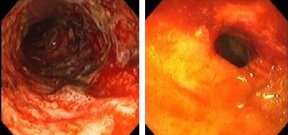Sulfur, after calcium and phosphorus, is the most abundant mineral element found in our body. It is available to us in our diets, derived almost exclusively from proteins, and yet only 2 of the 20 amino acids normally present in proteins contains sulfur. The sulfur-containing amino acids (methionine and cysteine) are found principally in red meat and dairy products. Proteins contain between 3 and 6% of sulfur amino acids. A very small percentage of sulfur comes in the form of inorganic sulfates and other forms of organic sulfur present in foods such as garlic, onion, broccoli, etc.
The metabolism of both sulfur containing amino acids is closely related. Methionine is one of the essential amino acids with many key roles in mammalian metabolism. It is a precursor for cysteine formation in …
Millions of people worldwide are affected by Ulcerative Colitis (UC) and Crohn’s Disease (CD), the two most severe digestive afflictions. Both diseases are classified under the medical rubric of IBD (Inflammatory Bowel Disease). Inflammatory mediators have been identified in IBD, and considerable evidence suggests that these mediators play an important role in the pathologic and clinical characteristics of these disorders. The result is an immune response that destroys normal body tissues. However, there is no scientific proof that IBD is an autoimmune disease. It is simply an assumption. The cause of IBD remains poorly understood.
 UC and CD share many extraintestinal manifestations, although some of these tend to occur more commonly with either condition. UC and CD cause life …
UC and CD share many extraintestinal manifestations, although some of these tend to occur more commonly with either condition. UC and CD cause life …
Metabolic abnormalities of tumor cells offer opportunities of therapeutic targeting. Tumor cells are more sensitive to methionine restriction than normal tissues, a phenomenon known as methionine auxotrophy. Methionine is one of the essential amino acids with many key roles in mammalian metabolism such as protein synthesis, methylation of DNA and polyamine synthesis but cannot be produced in the body, and so must be provided through our diet.
Many cancer cells and primary tumors have absolute requirements for methionine. Methionine-dependent increase in tumor cells is a specific metabolic defect. The biochemical mechanism for methionine dependency has been studied extensively, but the fundamental mechanism remains unclear. Methionine starvation can powerfully modulate DNA methylation, cell cycle transition, polyamines and antioxidant synthesis of tumor cells. Therefore, low methionine in the diet may be an important …